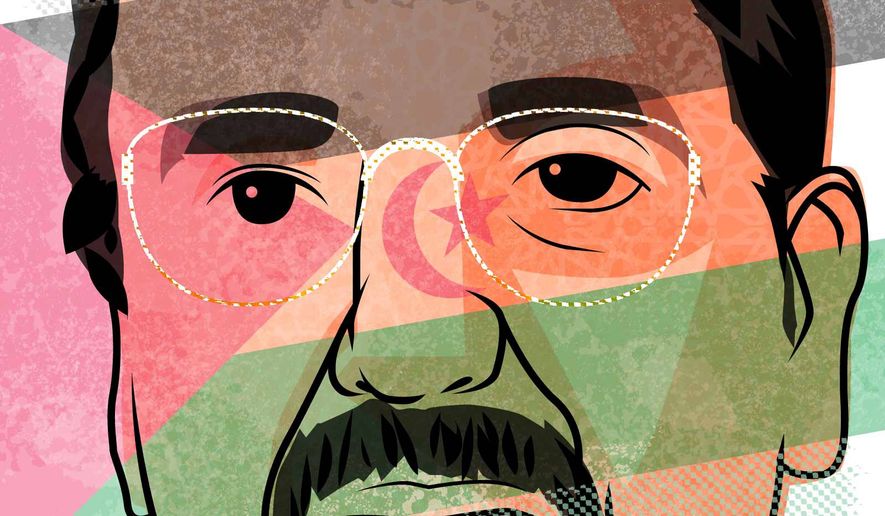OPINION:
Mohamed Abdelaziz, President of the Sahrawi Arab Democratic Republic passed away May 31. Few Americans who read the short obligatory mention of his death had ever heard of him or knew there even is a Sahrawi Republic, but he was a great leader, a Muslim democrat and a man who had spent a lifetime fighting for the independence of his people many of whom have lived for decades in U.N. administered refugee camps in Algeria just across the border from their own land. They are in these camps because their land was seized and is occupied by Morocco which has refused all attempts to displace them so the rightful occupants of the land can return to it and live in peace.
The Sahrawi of the Western Sahara, along with the Palestinians, are homeless. Most people haven’t heard of their plight, however, because President Abdelaziz was a man of peace who, perhaps naively, believed in justice and the rule of law. He was instrumental in the formation of the Polisario Front which fought the Spanish when they ruled the area then known as the Spanish Sahara, but when they left and Morocco moved in he decided to appeal to the world for justice. He went to the International Court of Justice in 1974 claiming that the occupiers of his peoples’ land had no legal or historical claim on which to base their claim and won. The Moroccans ignored the Court findings and dug in as his people fled to the camps in Algeria.
Undeterred, Mr. Abdelaziz established a Republic within the camps and continued his appeals to the world while in the meantime preparing the some 300,000 Sahrawi refugees for the day they would get their land back. The new Republic in the 1980s adopted a constitution unique to that part of the world. It guaranteed equal rights to all and in the years since the Republic established under it has operated democratically, protected the right of religious freedom and the rights of women, many of whom today hold important positions within the Republic’s government. Mr. Abdelaziz was elected and re-elected president although on several occasions he was placed on the ballot over his objections as he felt it important in a democracy that he step aside.
It hasn’t always been easy. Many within the camps have wanted to wage a war of terror against Morocco, seeing that those who like the Palestinians resort to violence get the world’s attention while those who seek justice peacefully are ignored and ultimately forgotten. That he was successful during his lifetime in keeping his people from taking this path is a tribute both to his belief in the ultimate triumph of justice and his persuasiveness as a leader. He never faltered in his conviction that at some point the world would take notice and his people would be able to return to their own lands. In the meantime, he urged them to prepare. Today they have a 90% literacy rate, the highest of any group on the African continent and a functioning democracy.
In 1991, Mr. Abdelaziz took the Sahrawi case to the U.N., which like the International Court of Justice found that Morocco in the wrong and endorsed his call for a plebiscite. Fearing that they couldn’t hold out against world opinion forever, the Moroccans began resettling Moroccans in the occupied territories and demanded that if a plebiscite was to be held they should be able to vote as well.
After years of wrangling, the U.N. named former U.S. Secretary of State Jim Baker to try to come up with a solution. He managed to get the Sahrawis to accept plans for a plebiscite that would indeed allow many of the Moroccans who had been moved into the territories to vote, but Morocco finally rejected the plan. They had never actually wanted to risk losing the land and continue to occupy it while the U.N. passes worthless resolutions and 300,000 Sahrawis live in refugee camps in the middle of the Sahara Desert.
My daughter spent several months as a volunteer in the main camp at Tindhook. The camp is run by the U.N. and the funds from the U.N. are augmented by the largess of U.S. Christian churches that have stood steadfastly with the Sahrawi. One night I received a call from Mr. Abdelaziz and my daughter, who had been felled by some African bug and was quite ill. The only way to get her out and to a real hospital was to wait for a regular supply plane from Algiers that wasn’t scheduled to arrive for some days.
I told Mr. Abdelaziz that if need be I would charter a plane to get her the attention she needed. He paused and said, “No, when she is back with you she will be your daughter; now she is mine and I will take care of her.” He did, of course, by persuading the Algerian government to send a plane. She recovered and on his next visit to the United States Mr. Abdelaziz attended her birthday dinner.
We never recognized the Republic he led lest we offend the Moroccans, but 70 nations did, the International Court of Justice and the U.N. backed him and he was elected several times to high positions in the African Union.
He was a great man. It’s too bad more people around the world didn’t know him, listen to him and emulate him. If they had, the world would be a better, fairer and more peaceful place.
• David A. Keene is Opinion editor at The Washington Times.




Please read our comment policy before commenting.